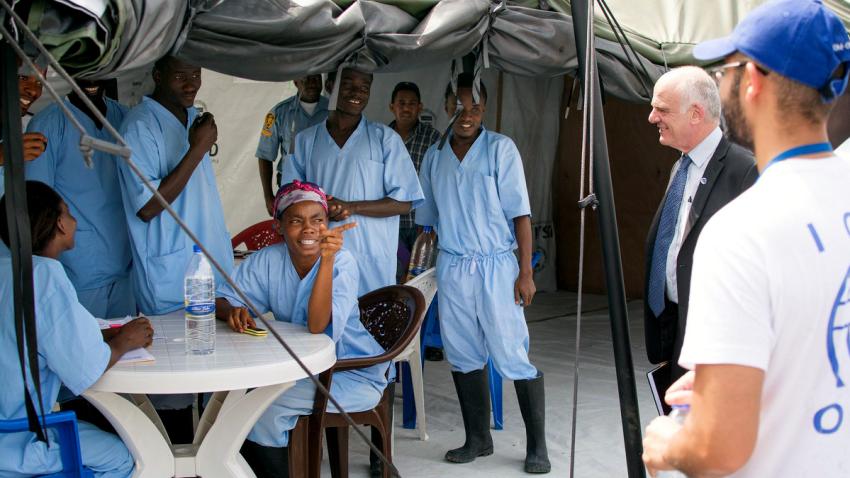Trans women in Mexico City, an often persecuted group, show kindness and solidarity with their neighbors by delivering meals to those in need during COVID-19.
As in many countries, trans people face discrimination and exclusion in Mexico. Many left school prematurely and some suffered a break with their families and lack that key support network.
Now, COVID-19 means many have lost work, particularly in the sex trade. Organizations that once reached those in need of help are constrained by physical distancing rules. Food, health care, help with asylum applications, and other services have become harder to come by.
"Among the many severe impacts of the COVID-19 pandemic is the increased vulnerability of LGBTI people. Already facing bias, attacks and murder simply for who they are or whom they love, many LGBTI people are experiencing heightened stigma as a result of the virus, as well as new obstacles when seeking health care," said United Nations Secretary-General António Guterres on the International Day Against Homophobia, Biphobia and Transphobia.
Despite the hurdles – old and new – one organization in Mexico City, Casa de las Muñecas Tiresias A.C., is showing that solidarity and help are still possible. It provides shelter for 12 trans women and was named in honor of founder Kenya Cuevas’ friend, a sex worker killed by a client in 2016. That is a risk that many say is ever-present.
The home's residents share their experiences, their stories, their knowledge — and their dreams of a different future. Many are keen to finish studies often cut short during teen years. Most are putting new skills into practice by creating videos, managing the organization’s social media and teaching others. They also stay busy cooking for their neighbors.
Meet the trans women from Casa Hogar Paola Buenrostro preparing food for their neighbors in Mexico City.
On weekdays, CHPB offers food to residents in the area. At the shelter’s door, neighbors are offered hand sanitizer and urged to use it at home. Ms. Márquez takes their temperature as residents prepare and distribute food – in all, 80 meals on most days. Both those serving and those receiving are thankful, for the work and for the kindness. Whatever their differences, almost everyone has been seriously affected by the pandemic.
CHPB’s current residents are from Honduras, Venezuela, Argentina and Mexico. Some are living with HIV, others are in treatment for substance use. None has left the shelter since mid March because “there are no more clients and the hotels have closed, including the hotels where they used to live,” said Catherine Márquez, the organization’s deputy director. “We brought them here because they had nowhere else to live.”
Ms. Márquez, Ms. Cuevas and their colleagues have struggled to establish the shelter and help its clients get justice, access to treatments, and complete their educations. They have fought for their rights to an identity and the documents that safeguard that. They have helped some apply for refugee status. To make CHPB a home, they have secured donations of everything – from furniture and kitchen supplies, to bedding, towels, soap, clothes, shoes - even makeup and wigs.
Teaching skills that let clients improve their lives is the model for social reintegration and economic autonomy, the deputy director explains. “We want to open that to the whole community once the pandemic passes. We want to be inclusive,” Ms. Márquez said. Like the women now at the shelter, she too dreams of a world in which all people can enjoy full rights, regardless of their sexual orientation, identity or gender expression.
“What we are going through today is a great challenge and experience for humanity. It allows us to do internal work, to be less selfish. We have to realize that we are sharing a space, a planet. What we should take away from this experience is to be more inclusive, to see ourselves not as men or women, how you dress, or as trans, bi, hetero or polyamorous, but only as human beings,” Ms. Márquez said.
The UN celebrates International Day against Homophobia, Biphobia and Transphobia on 17 May, while many countries celebrate Pride Month in June of every year. The United Nations has called for equal rights and fair treatment of lesbian, gay, bi, trans and intersex people worldwide. The UN High Commissioner for Human Rights launched the “Free and Equal” campaign, a global initiative to promote equal rights and equal treatment of LGBTI+ people.




